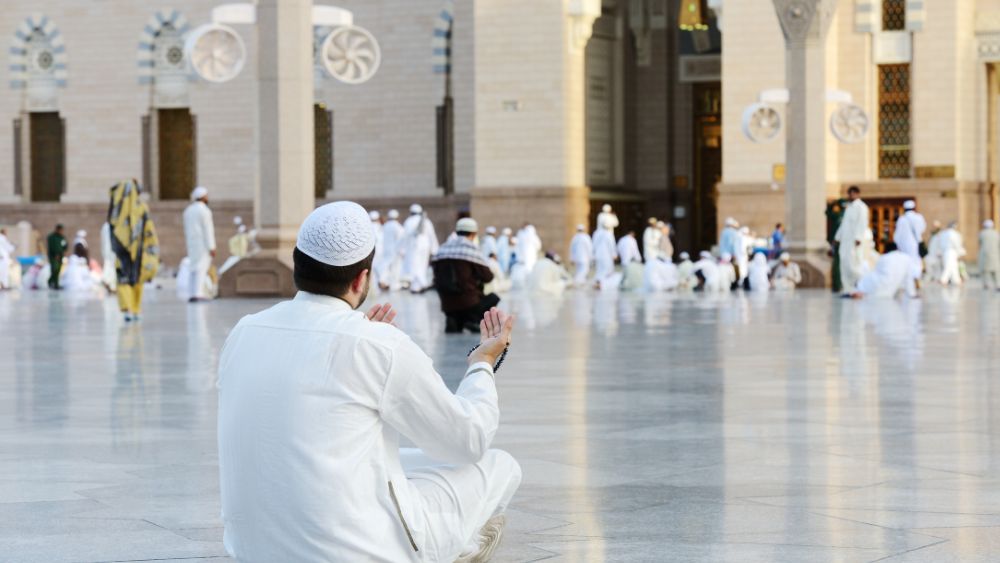8 Important Teachings & Lessons from Ramadan to Carry Beyond the Month

The first bite of a date or a sip of water at Iftar after a long day of fasting feels wholesome and gratifying. It helps us appreciate the little things in life that we often neglect. Ramadan teaches us that stepping out of our comfort zones helps us develop the qualities of a true servant of Allah and gain a deeper understanding of life’s greater purpose.
Ramadan is more than just refraining from food and drink; it is a transformative journey towards attaining righteousness, humility, self-discipline, patience, and compassion. The lessons from Ramadan are like a classroom for the soul with rigorous sessions to shape your heart, mind, and actions long after the crescent moon of Eid appears.
But what exactly are these Ramadan teachings? How can we carry their light into the ordinary days? Let’s walk through these lessons together in this article.
Lesson 1: Attaining the Fear of Allah
The first lesson Ramadan teaches us is to fear Allah in all that we do, no matter where we are. During this sacred month, we refrain from food and desires from dawn to dusk solely to please Allah. There is nothing superficial about it.
If someone wanted to eat in private, no one else would know. But true righteousness is choosing to abstain, knowing that Allah is always watching.
In this way, Ramadan instils in our hearts the fear of Allah to stay away from sins and wrongdoings, reminding us that Allah is ever watchful.
Lesson 2: Nurturing Self-Discipline
The first few days of fasting are always the hardest. Our bodies crave food, our energy dips, and Iftar feels very far away. But as the days pass, we start to adapt. The hunger that once felt overwhelming becomes manageable. This way we attain self-discipline.
Ramadan trains us to get a hold of our whims and desires. Whether it’s resisting the urge to eat or holding back an unpleasant word, we learn to control ourselves.
Waking up in the middle of the night for Suhur also gives us the opportunity to pray Tahajjud, strengthening our connection with Allah.
After a month of practice, these habits become part of our lives, and we should strive to carry them forward throughout the year.

Lesson 3: Showing Compassion & Generosity Towards the Deprived
During the month of Ramadan, we fast for 30 days experiencing hunger and thirst. It gives us a chance to feel the suffering of the millions of people around the world who don’t know when their next meal will come.
By giving a first-hand experience, Ramadan teaches us to be compassionate and generous, encouraging us to share what we have with those in need.
Whether donating to charity or simply offering a glass of water to a passerby, acts of kindness become second nature during this month. But the true purpose of fasting during Ramadan is to soften our hearts toward the less fortunate. By showing them generosity, we can cultivate the essential qualities of becoming a better Muslim.
Lesson 4: Fostering Gratitude and Appreciation
When we break our fast, something as simple as a glass of water feels priceless. Ramadan has a way of making us appreciate the little things—food, family, and even time itself.
It reminds us to slow down and reflect on what we have, rather than always thinking about what we don’t. Sometimes, the things we take for granted are the very things others can only dream of.

Lesson 5: Developing Patience and Perseverance
Waking up for Suhoor when the world is still asleep, waiting for Iftar when hunger starts to bite, or standing in long Taraweeh prayers after a tiring day—Ramadan teaches us that patience, persistence, and unwavering commitment to the Deen through hardships are the keys to becoming a better Muslim.
Life, too, is full of moments that test our patience—whether it’s waiting for the right opportunity, dealing with difficult people, or facing hardships. Life doesn’t always get easier, we just learn to become more resilient. And Ramadan is the perfect training session for that.
Lesson 6: Ensuring Spiritual Connection with Allah
Ramadan has a unique way of deepening our connection with Allah. Through fasting, Quran recitation, Taraweeh, I’tkaf, Qiyam-ul-Layl, Sadaqah, Dhikr, and other acts of worship, It offers a full package for having an unbreakable bond with the Creator of the heavens and earth.
The purpose of Ramadan isn’t just to elevate our Imaan for 30 days—it’s a preparation for our souls, ensuring we hold fast to the rope of Allah throughout the year.

Lesson 7: Enriching Community Bonds
There’s something truly special about sitting down for Iftar with family and friends. The conversations, Dua, and sharing foods help strengthen our bonds with loved ones and the community. It’s also the perfect time to visit a neighbour with a plate of Iftar, spreading love and joy.
Standing side-by-side with others during Taraweeh and Qiyam-ul-Layl reminds us to accept and support everyone in the Muslim Ummah, regardless of their status. Similarly, spending 10 days in I’tikaf fosters a sense of brotherhood and gives us the chance to connect with more people in the Muslim community.
For those fortunate enough to go to Umrah during Ramadan, it’s a chance to join millions of believers from around the world in worship. It reminds us that we are all part of the global Muslim Ummah, united as one body.
Lesson 8: Encouraging Healthy Living
Ramadan teaches us moderation. If we follow the Prophetic way, our body condition will surely improve. Bi Izhnillah, Even modern science shows that fasting for long periods during the day can help fight cancer cells, burn unhealthy fat, and boost immunity.
Muslim scholars have always advised not to overeat during Iftar, as eating too much makes Taraweeh and Qiyam-ul-Layl harder to perform. Practising food moderation for 30 days in Ramadan can help break bad food habits, like cravings for oily, processed, and junk foods.
To maintain the health benefits you gain during Ramadan, try fasting the Sunnah fasts every Monday and Thursday each week and 3 Ayyam Al Beed fasts each month, starting from Shawwal.

Conclusion
As Ramadan comes to an end, we feel a mix of emotions—joy for the celebration of Eid, but also a quiet sadness knowing this sacred time is passing. But the beauty of lessons from Ramadan is that they don’t have to end when the month does.
We’ve learned self-discipline—so why not use it to break bad habits? We’ve felt the power of generosity—so why not keep giving? We’ve strengthened our patience—so why not apply it in our daily struggles?
Ramadan is not just a month; it’s a training ground for life. If we can carry its lessons forward, we don’t just become better during Ramadan—we become better our whole life.
So, as we step into the days beyond fasting, let’s not leave behind the wisdom it has given us. Let’s make these Ramadan teachings a part of who we are, today and always.


